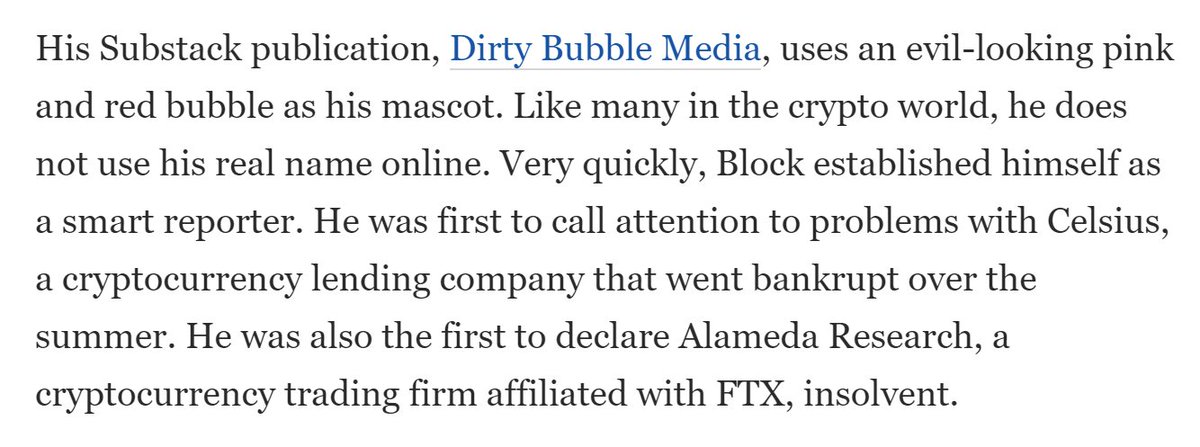
I love @MikeBurgersburg dearly, but he wasn't the the first to draw attention to problems at #CelsiusNetwork. I was, by more than 6 months. And he wasn't the first to declare Alameda insolvent, either. Again, I was. Why am I being ignored, @taylorlorenz? @washingtonpost 

In April 2021, I wrote detailed threads about Celsius in which I took their terms of service apart, examined their published accounts, and analysed their marketing material. I warned people then that it was taking huge risks with people's funds and was possibly insolvent.
I took massive amounts of abuse from Celsians for these threads. Among other things, they accused me of being paid by Coindesk to discredit Celsius. I write for Coindesk, but I'm not employed by them. I would never do hit work for them or anyone else.
I resent being airbrushed out of existence. I was ahead of everyone else on this. I deserve acknowledgement.
• • •
Missing some Tweet in this thread? You can try to
force a refresh













